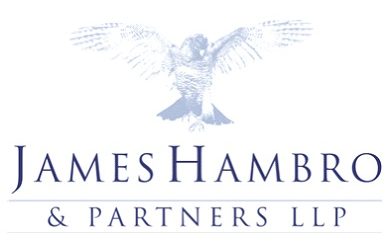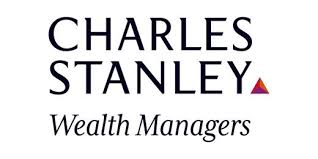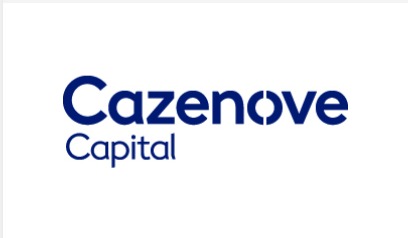This month:
Managers risk-up (within reason)
Equities’ allure trumps bonds.
Preparations begin for rising inflation.
Dividend-payers look attractive.
Consensus crowding on positioning causes concern.
Featuring this month’s experts:
Market “noise” is deafening at present and DIY investors may well be struggling to decide what action they should be taking to minimise risk and maximise their returns.
In this February 2017 issue of Expert Investment Views, leading professional investment managers tell us a little about how they are positioning their clients’ investment portfolios, flagging up both opportunities and risks.
Psigma Investment Management: We are reining in risk across our investment strategies
Insights from:

Tom Becket, Chief Investment Officer at Psigma Investment Management, says:
Broadly, the overall risk levels in our portfolios have come down significantly since the start of 2016. The volatile market conditions that were suffered at the end of 2015 afforded investors a “once in a cycle” opportunity to make excellent returns, similar to what we last saw following the European Debt Crisis of 2011 – but much has now changed, both in terms of the potential rewards on offer to investors and the shape of our portfolios.
We have lowered our emphasis on some of our contrarian positions, such as US high-yielding corporate credit, emerging market equities and resources, reduced overall equity risk within our portfolios and added further weight to defensive investments. That is not to say that we are now excessively cautious, but rather our portfolios and our views on markets are more balanced than they were at the start of last year.
Reassuringly, we can still find plenty of interesting and potentially rewarding investment opportunities across global financial markets, but we are having to cast the net wider in our search for suitable investments. Where we do have high levels of conviction, such as we have with Japanese equities, our “Asian consumption” theme, inflation-protecting assets and specialist credit investments, we continue to back such investments strongly and we remain confident in achieving our clients’ long-term aims.

Tom Becket
Chief Investment Officer at Psigma Investment Management
James Hambro & Partners: We see fortune favouring the brave (But not reckless)
Insights from:

James Horniman, Investment Manager at James Hambro & Partners, says:
Global equity markets measured by crude PE ratios are at the top of historical ranges in most markets (except Japan). More worryingly, the cyclically-adjusted, longer-term Shiller PE ratios show the US at levels only exceeded at the end of the 1920s and 1990s bull markets. So, should investors be worried? Are markets overvalued?
Two axioms come to mind: “Time in the markets, not timing the markets” and “Markets climb walls of worry”. Market timing is very difficult and those who try it often end up worse off (as investors who piled out of the FTSE 100 in the immediate aftermath of the Brexit result have found).
In times like this we believe there is an element of fortune favouring the brave – though not the reckless.
There may well be a pressure-cooker moment when markets in many countries let some steam out, as they did last February. A correction may bring with it buying opportunities.
Our portfolios typically have 10% cash – potentially useful in this scenario. This also reflects some of the uncertainties and our concerns about the lack of downside protection currently provided by bonds, which might ordinarily be expected to play a bigger part in portfolios.
We expect to continue favouring equities over bonds (particularly given concerns about inflation). We will be selective, continuing to prioritise cash-generative companies with strong managements, competitive advantages and the capability of delivering rising dividends. And we will seek to reduce risk wherever possible, remembering our key long-term priority of capital preservation.

James Horniman
Investment Manager at James Hambro & Partners
Seven Investment Management: We are preparing for inflation around the corner
Insights from:

Alex Scott, Deputy Chief Investment Officer at Seven Investment Management, says:
Investors have been sensing hints of inflation since the summer. With Trump’s election win in November, those hints became much less subtle. The US economy, already experiencing decent growth and some inflationary pressures, could be hit with a combined stimulus of tax cuts and infrastructure spending and, potentially, with tariffs on imports and curbs on migrant labour. The stimulus measures could boost growth, while the protectionist steps could be more disruptive. But importantly, each of these policies has scope to add fuel to the inflationary fire. It is little wonder that bonds sold off as the market pricing of inflation expectations rose.
Clearly investors do not yet know which Donald Trump will govern over the coming months: the protectionist micro-manager; the anti-China aggressor; the pro-business tax reformer; the ineffectual self-publicist; a President too beset by scandal to achieve much at all; or elements of all of the above. But one factor is a constant: inflation will be rising, mechanically and unstoppably, in the US over the next few months. It will be driven by the rebound in oil prices that’s already happened, rising rents, rising medical costs (perhaps rising rather faster if Obama’s Affordable Care Act is indeed scrapped) and rising wages all feeding into services’ prices.
White House policy may influence how investors respond to inflation. They may see it as a benign accompaniment to pro-growth policy or an invitation to the Federal Reserve for much higher interest rates to head off the risk of boom-and-bust. They may ignore it in a climate of growing risk aversion and buy low-yielding Treasury bonds regardless. Only time will tell.

Alex Scott
Deputy Chief Investment Officer at Seven Investment Management
Charles Stanley: We think opportunities abound in
Insights from:

Will Walker-Arnott, Investment Manager at Charles Stanley, says:
I have always looked to operate a strict investment philosophy for my client base; in particular I screen the market looking for companies which are highly cash-generative and have a long history of consistently growing their dividends. I strongly believe that the ability to grow dividends over time demonstrates that a company is well managed and provides the foundation to share price growth.
Halma, the FTSE 250 engineering company, is a good example of an equity which demonstrates these characteristics. Remarkably, Halma has now managed to grow its dividends by 5% or more for each of the last 37 years and has an impressive share price performance to match.
Since Donald Trump was elected into office back in November, a number of companies which exhibit these cash generative, defensive characteristics have suffered. The “Trump Bump” has resulted in many cyclical sectors like financials and commodities outperforming as investors rotate into higher-risk equities. I would argue that this rotation has left many high-quality companies looking undervalued and the current environment provides an attractive entry point.
In December 2016, I purchased for my clients a holding in Imperial Brands, which has a commitment to growing its dividend by 10% a year and is looking cheap on a historic basis. There are plenty of other defensive companies offering similar value at present and, given the political uncertainties on the horizon, we think this is where we should be deploying capital for our clients.

Will Walker-Arnott
Investment Manager at Charles Stanley
Quilter Cheviot: We see cloud computing is the technology investment theme to watch
Insights from:

Ben Barringer, Equity Research Analyst at Quilter Cheviot, says:
The race for dominance in the cloud computing arena continues to gather pace and tech giants Amazon, Google and Microsoft will remain of interest to us, given the investment each is ploughing in to its cloud capability and the potential profit this will generate.
Looking at each of the three main players, we see opportunity attached to Amazon given its domination of e-commerce and the prime position that Amazon Web Services (AWS) has secured in the cloud domain. Likewise, Google remains in a position of strength when it comes to online advertising and Microsoft leads the way in corporate cloud computing with its Azure platform.
We will keep a keen eye on the cloud competition as 2017 progresses but we are likely to see advancements in other areas of the tech market for Amazon, Google and Microsoft. For instance, by the end of this year we think that the voice assistant services available from Amazon (Echo Dot/Alexa), Google (Now) and Microsoft (Cortana) will be much more prolific. Voice recognition has been around for over 20 years however high error rates meant that the technology struggled to meet consumer expectations. Now, with the benefit of cloud computing power and increased connectivity, voice assistants are finally delivering better results.
Amazon’s new Echo Alexa service, for example can answer simple questions by accessing weather forecasts, sourcing recipes and so forth but, much like smartphone “apps”, the power comes in customising your device with specific “skills”. Alexa’s skills have grown from 30 when launched in 2014 to 7000* currently and now include the ability to order pizza, book taxis through Uber, read bedtime stories to children and connect to digital in-home lighting and heating systems.
Voice assistants are enabling humans to interact faster with computers by leveraging the power of the internet, but they are just one example of cloud-enabled growth. As it continues to gain traction, cloud computing will be a transformational force for the IT industry, providing a myriad of interesting investment opportunities.

Ben Barringer
Equity Research Analyst at Quilter Cheviot
Cazenove Capital: We prefer cyclical and value exposure
Insights from:

Caspar Rock, Chief Investment Officer at Cazenove Capital, says:
We entered the year with a neutral position in equities. Within equities, we retain a preference for the US and have been tilting the portfolios away from the “mega-caps”’, as the growth and interest rate differentials should drive both the equity market and the US dollar higher. We continue to have a preference for more “cyclical” and “value” exposure given the backdrop of rising interest rates and bond yields. Although we are slightly underweight in cheaper European equity markets, they are showing signs of improving growth and inflation, and as a consequence are becoming relatively more attractive.
We remain underweight in fixed interest, and especially government bonds, as the backdrop of reasonable growth and rising inflation points towards higher rates in the medium term. We also believe that the ending or even unwinding of some of the extraordinary Central Bank measures will rise up the agenda in the coming year. Our fixed income exposure continues to be built on a combination of inflation-linked securities, and shorter-dated corporate credit.
There is currently a noticeable crowding of consensus in the market around positioning – overweight equity, underweight fixed interest and long the dollar, which does give us cause for concern. We are prepared to be nimble on changing our positioning as the year unfolds. Perhaps the most difficult consideration around strategy for this year is the impact of politics on portfolios, what with the new Trump administration in the US and a number of upcoming general elections in Europe.

Caspar Rock
Chief Investment Officer at Cazenove Capital
Important information
The investment strategy explanations contained in this piece are for informational purposes only, represent the views of individual institutions, and are not intended in any way as financial or investment advice. Any comment on specific securities should not be interpreted as investment research or advice, solicitation or recommendations to buy or sell a particular security.
We always advise consultation with a professional before making any investment decisions.
Always remember that investing involves risk and the value of investments may fall as well as rise. Past performance should not be seen as a guarantee of future returns.
